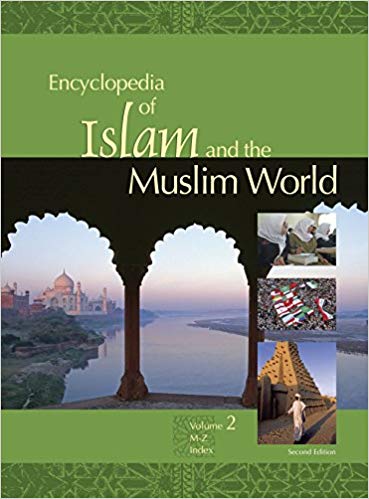
Long ago, I wrote the article on Allah for the Encyclopedia of Islam and the Muslim World (New York: Macmillan Reference USA, 2003), and then I revised that article for the Encyclopedia‘s second edition, which appeared in 2016.
The most fundamental change to that article was very short sidebar that accompanied my main entry. This is how it reads, including my translation of the verse that it discusses:
The Throne Verse
The Qur’an’s famous Throne Verse (2:255) offers a fine summary of basic Islamic teaching regarding God.
“Allah! There is no god but he, the Living, the Everlasting. Neither slumber nor sleep seizes him. His are all things in the heavens and the earth. Who is there who can intercede with him, except by his leave? He knows what is before them and what is behind them, while they comprehend nothing of his knowledge except as he wills. His throne extends over the heavens and the earth. Sustaining them does not burden him, for he is the Most High, the Supreme.”
Perhaps the most popular and beloved passage in the Qur‘an, this often-memorized assertion of God’s universal dominion is a favorite of artists across the Islamic world. Tradition credits it with a special saving power and reports that the prophet Muhammad himself considered it the greatest verse revealed to him. The depth of Muslim devotion to Allah is apparent virtually everywhere in Islamic life, including even in the use of elaborate calligraphic renditions of the word Allah as architectural and artistic ornamentation.
***
A slightly different version of the lecture given by my friend Dr. Glen M. Cooper on 10 January 2019 at BYU’s David M. Kennedy Center for International Studies has now been posted, including the introduction that was given to him, with a new address:
“Memory and Erasure in the Story of the West: Where Have All the Muslims Gone?”
Glen Cooper graduated from Brigham Young University in physics and astronomy, and continued his academic career by studying philosophy at Oxford. Later, Dr. Cooper went on to earn his Ph.D. in the history of Islamic science and culture from Columbia University. Additionally, Dr. Cooper has worked on the Islamic Translation series at the BYU Maxwell Institute, taught Middle Eastern history at BYU, and taught history and religion classes at the Claremont Colleges in greater Los Angeles. He has also taught Greek, Byzantine, Jewish, and South Asian history courses. Dr. Cooper is very widely published, especially on the topic of Islamic science, and currently resides in Springville, Utah, where he is working away on his next book.












